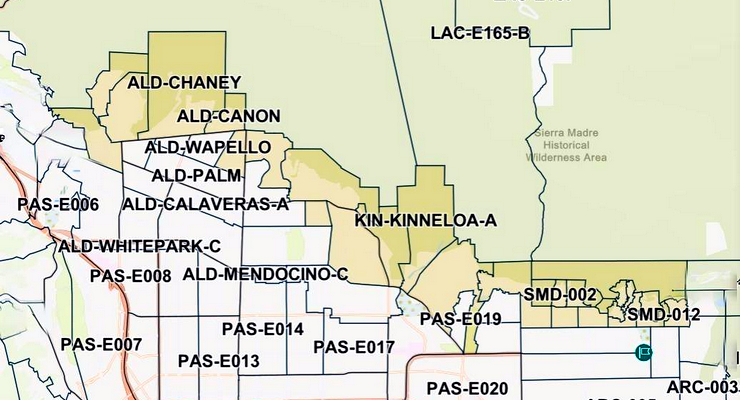
The six-hour-and-six-minute meeting highlighted the ongoing crisis that developed after extraordinary windstorm conditions with gusts over 80 mph triggered an apocalyptic fire on January 7, leading to an official Local Emergency declaration.
“I can’t take my toddler home right now because there’s ash and soot all over, her toys, all over our beds,” said one District 2 resident who requested anonymity. “My daughter had to quit college to help me try to clean our apartment and try to help me watch my toddler.”
The disaster destroyed 117 single-family homes, 12 multifamily units, and three accessory dwelling units in Pasadena, while leaving countless other residences contaminated.
Many residents reported being displaced for weeks while still having to pay rent, with some receiving lease termination notices after complaining about conditions.
“I myself have spent $9,000 and still have to pay my rent,” said Brittany Porter, who remains displaced. “Most people do not have that option. Most people have to go back to their ash-filled homes with their children.”
Residents reported quotes of as much as $60,000 for complete apartment cleaning, while others described facing up to $20,000 in costs to replace contaminated belongings.
In response, community members said they had organized mutual aid efforts.
“We raised nearly $86,000. We had foundations donate and then we bought $36,000 worth of “PPE” [Personal Protective Equipment] and we’ve just been giving it out of a U-Haul in North Pasadena right now,” said Enji Chung, who organized the effort.
The Rental Board unanimously recommended that City Council create an emergency defense against eviction for tenants financially affected by the fire, requiring sworn statements of hardship. Current protections include a 3% limit on rent increases for rent-controlled units and a 10% cap on other units under emergency price gouging regulations. The new emergency eviction protection would allow tenants time to get back on their feet without facing eviction if they lost income or have increased expenses due to the fire.
The Board also asked staff to report back on other potential emergency measures:
- Prohibiting evictions of tenants housing fire victims and/or pets
- Allowing temporary reduction in rent without impacting base rents and future rent increases.
- Creating new tenant buyout regulations
- Developing regulations for repairs while units remain occupied
- Establishing temporary rules for short-term rentals during the crisis
- Providing prorated fee refunds for destroyed properties
The Rent Stabilization Department has reportedly issued an emergency purchase order for relocation services, with 14 housing providers offering assistance.



















